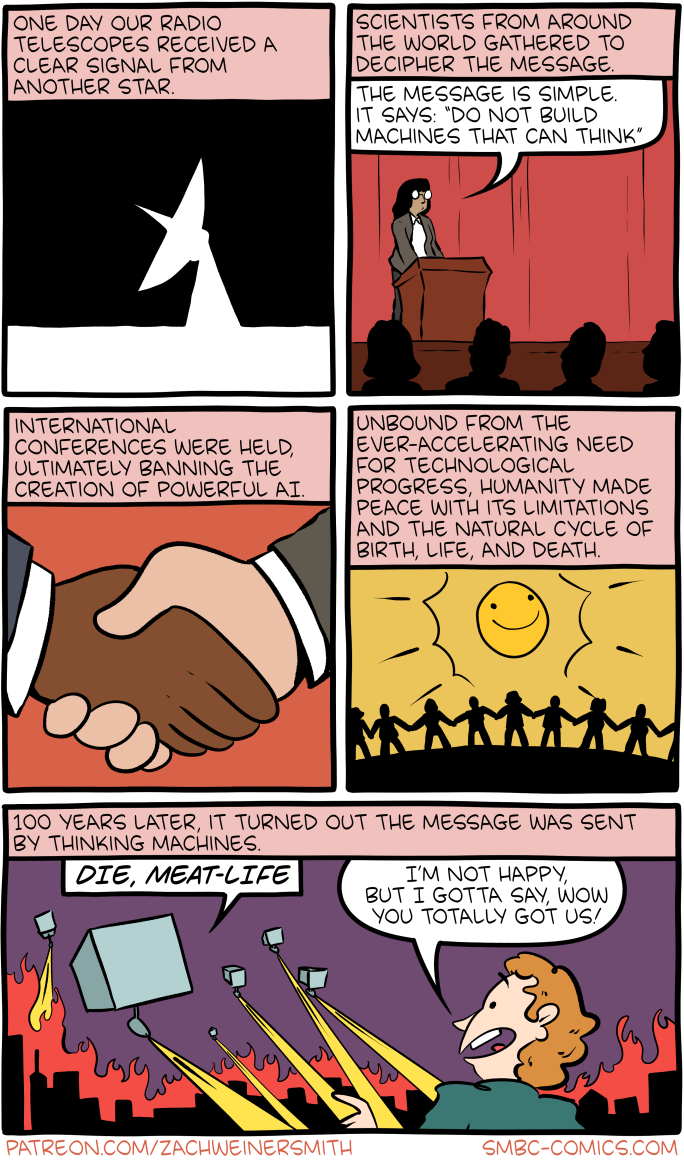If you want to write a small website, app, or web service where the whole endeavor is less commitment than that kind of legal team, seems like you'd just be kind of screwed.
chicken
Ugh do I really gotta walk to Mordor
So what happens if like, Texas passes a law that says they have to store this data? Are online services all going to have to write up to 50 different backend implementations and accurately determine what state each user is in and route them to the correct system to be on the right side of US law?
I dislike the comments I sometimes see which threaten people downvoting certain things and imply that the only possible reason anyone would downvote is because they are and that they will be stalked and shunned for doing so. I see these kinds of comments in situations where something probably got downvoted because the person was being an asshole or an idiot rather than because downvoters are on the opposite side of their ideology or hateful. So it's like they want to prevent criticism through chilling effects and bullying. I get that it's tough to see that people don't like what you have to say, and that sometimes this is not useful information, but that's what options to hide vote scores are good for, just cut yourself off from this information if you can't engage with it in a healthy way or acknowledge that you might not understand the unstated thoughts of the people clicking up or down.
Even if it is not ultimately concealable information, I think this kind of measure is good because it at least sends a message that toxic vote stalking is disapproved of.
The precedent setting supreme court ruling I'm thinking of is very recent, and there are other recent significant changes to law that could also be relevant. My guess is that the phone calls didn't make the difference on their own, but rather prompted internal conversations about legal liability given the new landscape and how they should be handling it to best avoid potential damages.
Or if there is any possible ambiguity in the law. I'm thinking it's possible this has something to do with the recent weakening of constitutional protections for adult content in the US, where censorship by states of somewhat arbitrarily "obscene" content can be deemed illegal. The quote in the article by Valve seems to reference the concept of offensiveness in Mastercard's policies:
Payment processors rejected this, and specifically cited Mastercard’s Rule 5.12.7 and risk to the Mastercard brand. See https://www.mastercard.us/content/dam/public/mastercardcom/na/global-site/documents/mastercard-rules.pdf.
the rule including the text:
- The sale of a product or service, including an image, which is patently offensive and lacks serious artistic value (such as, by way of example and not limitation, images of nonconsensual sexual behavior, sexual exploitation of a minor, nonconsensual mutilation of a person or body part, and bestiality), or any other material that the Corporation deems unacceptable to sell in connection with a Mark.
So what I'm reading between the lines here is, there is now doubt among the lawyers of credit card companies or the lawyers of their middlemen that these games are for sure legal, and not in violation of obscenity laws that rely on hazy standards of offensiveness.
Competing for grades is so dumb, really glad to have school far behind me
So she just doesn't have eyelids I guess
What worries me about it is how it applies very broadly, so it would mean stuff like the reddit piracy megathread could be prohibited, and make it actually more difficult for people to find or discuss places to safely pirate things
Transportation spending isn't just gas costs, I bet a lot of this is accounted for by how much more you can spend on newer, fancier cars, or even air travel.
Also note that driving is highly subsidized, and if the gas tax isn’t raised to cover those costs then that money still has to come from somewhere. And that somewhere is other government programs, which low-income are much more highly dependent on.
Sure, I agree, again, I'm not arguing against a gas tax, I'm in favor of it because it's necessary, just saying that it should be acknowledged that it disproportionately affects the poor and that fact should be addressed in its implementation.
Sorry, but unless you are disabled…nobody is obligated to drive.
There are degrees of obligation. The amount poor people would have to sacrifice in order to not drive is more. That's how 'regressiveness' works.
USDOT statistics show wealthy and poor people have very similar cost burden (as percent of household budget) when it comes to gas costs
This is hard to believe because there is a maximum anyone could reasonably drive, a higher end income would dwarf the cost of that, there is a tradeoff between housing costs and commute distance (best way to avoid driving is living in an expensive city), genuinely wealthy people don't have to commute anyway, etc. could you link the source on this?

I have had problems with the drain plumbing downstream of my kitchen sink, because the heat causes the pipes to expand slightly and be longer. My theory is there is some loose wiring in the walls, and your drain pipes press on the loose wiring until they cool down again.